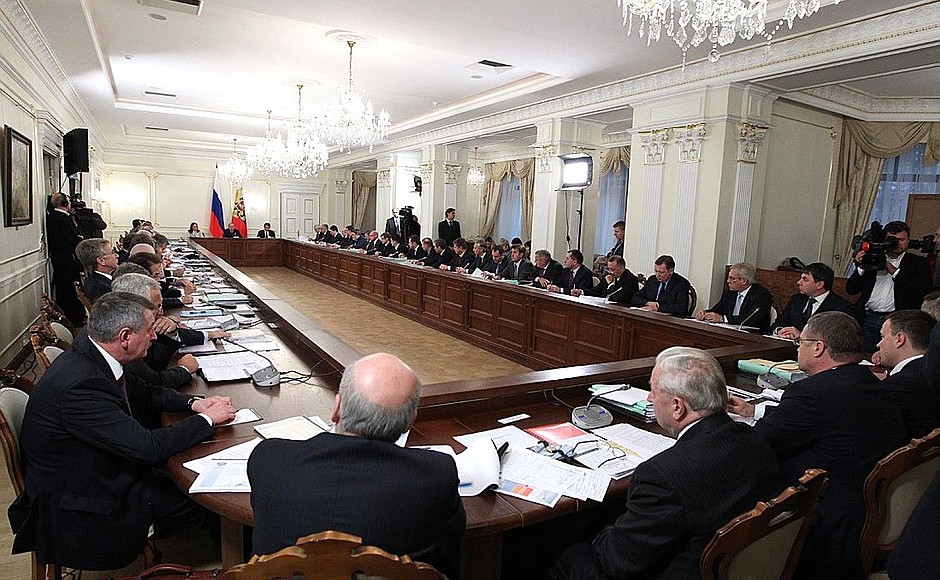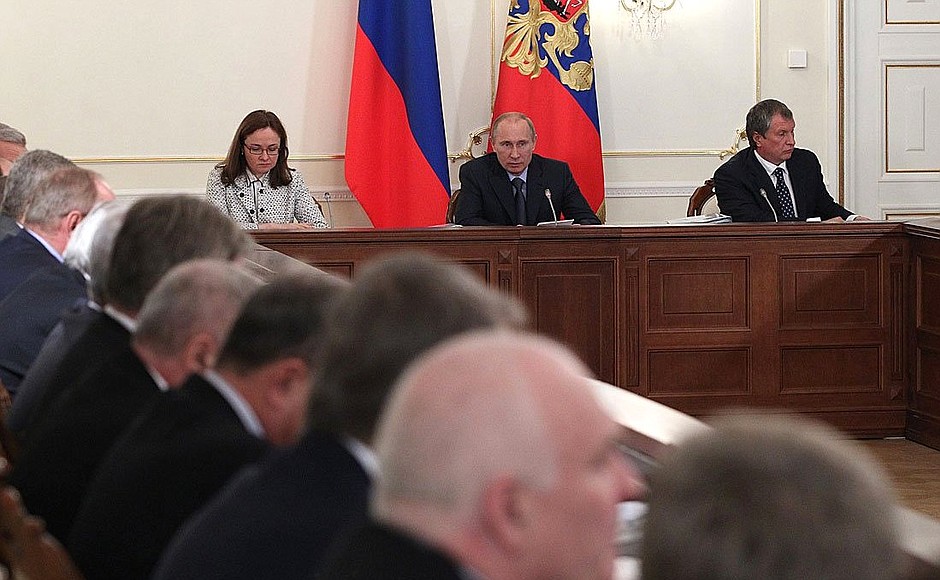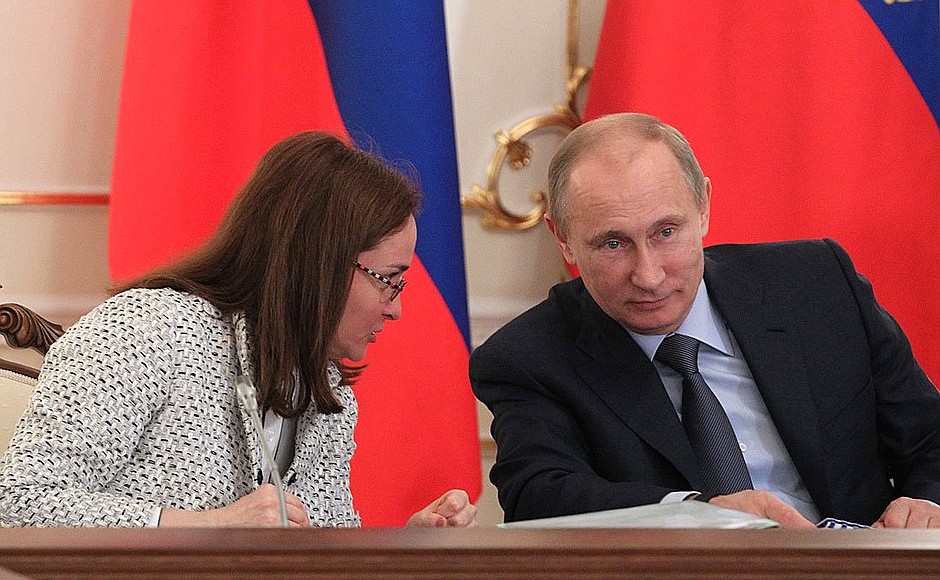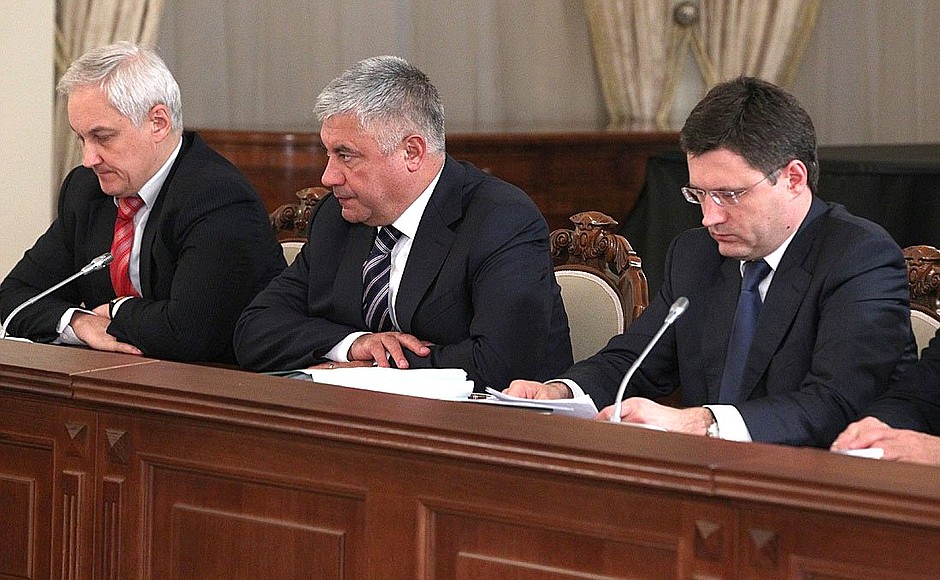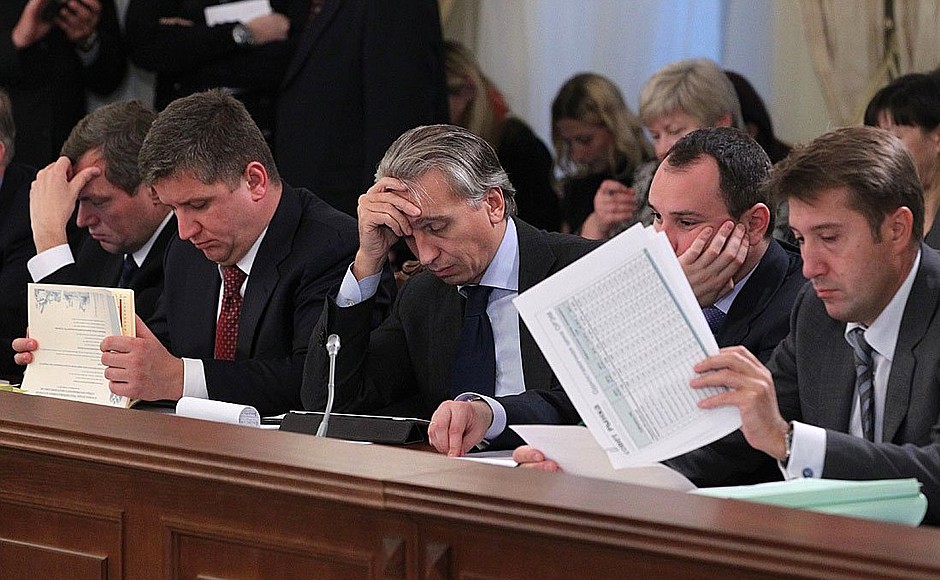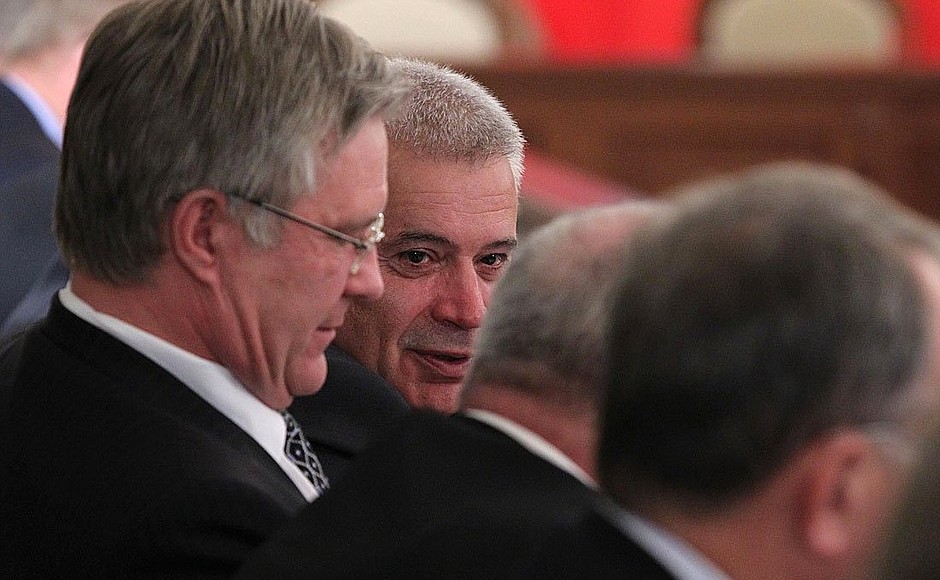* * *
President of Russia Vladimir Putin: Good afternoon, colleagues,
This is the second meeting of the Commission for Strategic Development of the Fuel and Energy Sector and Environmental Security. Our first meeting held in July 2012 showed that this is an interesting and useful format. We have a new venue for deep, multifaceted discussions of key, strategic matters pertaining to energy sector’s development.
Our today’s agenda consists of three main issues.
First, we will discuss the draft Doctrine of Russia's Energy Security, which was prepared by the Energy Ministry. This document aims to address a wide range of tasks, including ensuring a reliable supply of energy to consumers, innovative development of the fuel and energy sector, energy efficiency of all sectors of the Russian economy and non-discriminatory access of our exporters to foreign markets.
Regular renewal of enterprises’ production assets and maintaining these assets in a safe and efficient condition are our unquestionable priorities.
We will formulate strategic planning documents on the basis of the Doctrine and implement a long-term energy security policy. The Doctrine outlines a system of indicators for the assessment of key groups of internal and external risks. Today, we will conduct a comprehensive analysis of the Doctrine’s provisions, and I think it should be adopted in November.
In the future it will be necessary to monitor and assess the main indicators outlined in the Doctrine, thus ensuring control over the situation in the energy sector so that timely decisions are made on strengthening our country’s energy security.
The second item on our agenda is also directly related to energy security and the long-term prospects of strengthening Russia's position in the global energy markets. I am talking about current production trends and the proactive response to these trends in production, processing and sale of natural gas, which we will talk about today.
In recent years, we have seen a change in the energy market configuration. There is no need to explain this to you; you are all aware of the situation and understand what is happening. European countries, for example, are consistently working to create a common gas market. They are diversifying their sources of supply and adopting internal decisions that are not always coordinated with their main partners and are not always right, in my opinion, from the point of view of international law, but such decisions are made. We are in dialogue with our partners, and I hope that we will reach an acceptable consensus, but nevertheless we must consider these trends.
There is tough competition among gas exporters for the long-term and short-term contracts. However, energy consumption is rapidly growing in the Asia-Pacific region: China, Japan, which has increased its share of hydrocarbons since the Fukushima tragedy, India, and Russia’s other eastern neighbours are large and promising consumers. Given the existing transport infrastructure in Russia, this opens up new opportunities for the exporters of domestic energy resources.
Another important global trend is the growth of trade in liquefied natural gas. Such major players as US and Canadian companies have already begun to move in this direction.
I would like to note that more and more countries are adopting new gas production and processing technologies. For example, in the United States, as you know, new technology is used to increase the cost-effectiveness of shale gas production. That has caused some serious environmental problems, but, nevertheless, the technology continues to be used. The sale of the by-products makes it profitable even given the low domestic prices in the United States. Politicians, experts and the business community are all talking about a shale revolution. In 2011, according to our data, the output of shale gas in the United States rose to 214 billion cubic metres.
All of us know this well; we are not novices on the gas market and understand its laws. Therefore, we must be very prudent in our actions and at the same time very flexible.
In this regard, I ask Gazprom to conduct the necessary analysis and report to the Commission on the main principles of its gas export policy. The Commission must be briefed on the way the principal Russian gas company is planning to organise this work because a great deal in the Russian economy depends on its effectiveness. The Energy Ministry must make adjustments to the gas industry development plan to 2030 and our Eastern Gas Programme, and report on the results to the Commission.
Our priority, and I want to stress this, must be the domestic market, meeting the needs of the Russian economy, businesses and consumers, deep processing of raw materials, the development of gas chemistry and the maximum use of all gas components and by-products, as well as market diversification, taking into account the potential of Asian countries, as I have mentioned, and gas delivery methods.
An important area that will dominate in the future is the development of domestic gas processing and its use in the production of motor fuel. Gazprom should incorporate a special subsidiary [for that purpose] in the near future, or, perhaps, it has already been incorporated, and in that case we must support it in every way.
Despite the measures that are already being taken, much of associated gas continues to be wasted. About a quarter of the volume produced is simply burnt off: that is 24.6%, or 16.2 billion cubic metres. This is more than the total consumption of some European countries in a year.
Let me reiterate: we must take full account of the current trends in the global gas market in cooperation with our international partners, to find new mutually acceptable forms of cooperation, to be closer to the end users. Taken together, these steps will increase the export potential and competitiveness of Russian energy resources and enhance the status of our country as one of the leaders in the global export market.
Finally, the third item on our agenda is cooperation with the European Union, our closest partner and major consumer, in the electricity sector.
Russia has traditionally supplied large amounts of electricity to EU countries. First of all, this applies to our closest neighbours, Scandinavia and the Baltic region.
Thus, in 2011 we exported about 5.5 billion kilowatt-hours of electricity to the Baltic States. This is more than half of the total energy consumed by a country like Lithuania, and meets more than 20% of the total consumption of the Baltic States. Importantly, electricity from Russia is supplied to our partners without any interruptions even in the winter periods of peak demand.
Today it is essential to consolidate the principles of intergovernmental cooperation in the energy sector with the EU countries and the EU as a whole, to develop a set of measures that will improve the competitiveness of the Russian electricity sector, and not only to keep our traditional markets, but also to expand to new markets in the near future.
Colleagues, today I would like to hear your proposals on priority steps in all these areas. Thank you very much for your attention. Let’s get to work.
<…>
